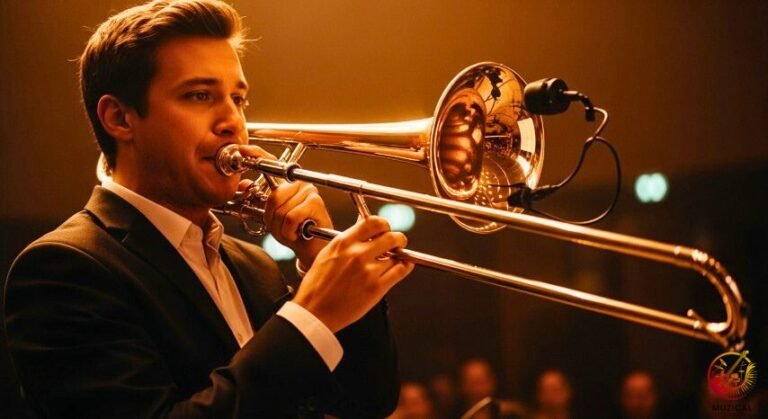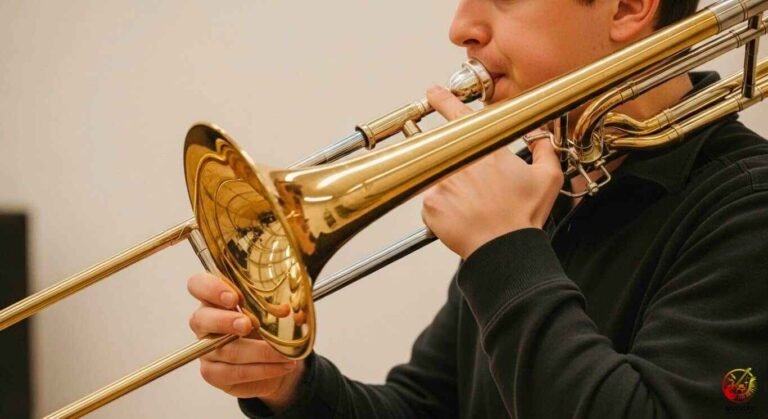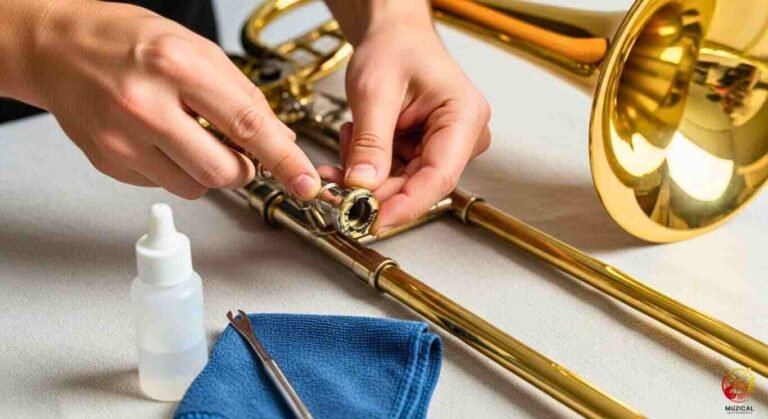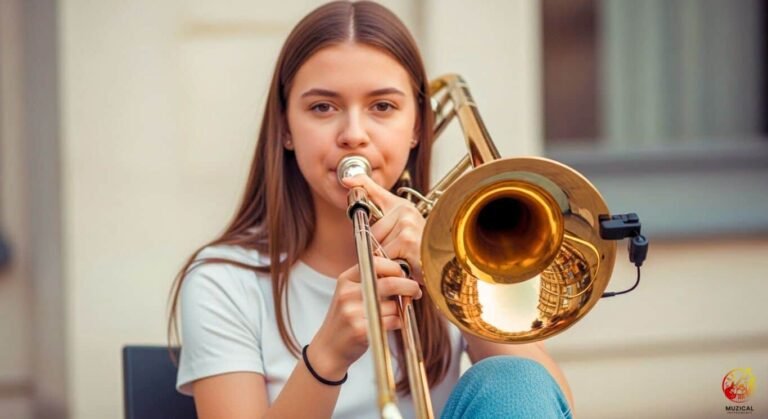How to Choose Between Tenor and Bass Trombone for a Beginner
How to choose between tenor and bass trombone for a beginner is a question many new musicians face the moment they decide to step into the brass family. Both instruments share the same slide system, yet they serve very different roles in bands and orchestras.
For someone just starting, the decision affects not only sound but also how quickly you progress, what kind of music you can play, and even the money you’ll spend on your first instrument.
In this guide, you’ll see a clear comparison of tenor vs. bass trombone, discover which one suits your physical comfort, learn about their roles in jazz, marching bands, and symphonies, and explore real beginner friendly advice from educators and professional players.
By the end, you’ll know how to choose between tenor and bass trombone for a beginner with confidence, whether your dream is a school band, a jazz solo, or the thunder of orchestral music.
What is the difference between tenor and bass trombone?
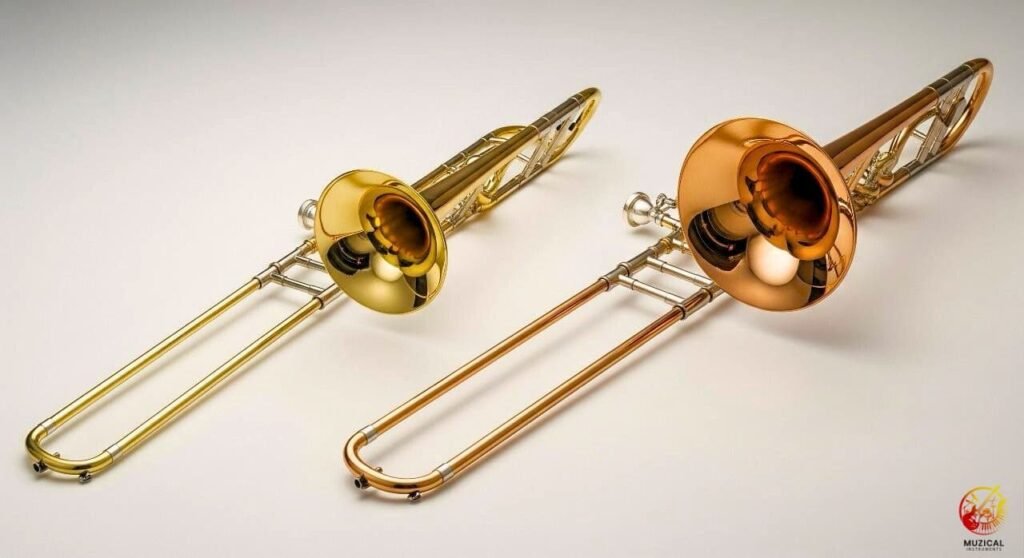
The first step in learning how to choose between tenor and bass trombone for a beginner is understanding their core differences.
A tenor trombone is smaller, lighter, and tuned in B♭. It offers a mid to high tonal range and is the standard starting point for music students worldwide.
The bass trombone is larger, heavier, and fitted with valve triggers that extend its tubing, giving access to a powerful low register.
Think of the tenor as a versatile all purpose tool, while the bass is a specialist designed for depth and power.
| Feature | Tenor Trombone | Bass Trombone |
|---|---|---|
| Tuning | B♭ | B♭ with F attachments |
| Size & Weight | Compact, easy to handle | Larger, heavier |
| Tonal Range | Mid to high | Low to very low |
| Common Use | Jazz, marching band, school ensembles | Symphony, film scores, brass choirs |
Yamaha and Conn Selmer produce excellent entry level tenor trombones, while Bach Stradivarius offers professional bass models. For a beginner musician, the lighter tenor is usually the practical choice.
Which trombone is easier to play for a beginner?

If you want to know how to choose between tenor and bass trombone for a beginner, you must ask: which one feels easier? The answer is almost always tenor.
The tenor requires less breath support, lighter arm strength, and simpler slide control. A music student can quickly grasp embouchure, airflow, and slide positions without the physical challenge of extra weight.
The bass trombone demands more. Its wide bore, larger mouthpiece, and heavy build mean you need strong lung capacity and stamina. Beginners often find themselves short of breath or struggling to balance the instrument.
| Factor | Tenor Trombone | Bass Trombone |
|---|---|---|
| Weight | 3–4 lbs | 5–6+ lbs |
| Breath Support | Moderate | High |
| Learning Curve | Faster for beginners | Slower, more demanding |
Band directors and teachers almost always recommend tenor for new players. Joseph Alessi of the New York Philharmonic, one of the world’s top trombonists, also started on tenor before mastering bass later in his career.
What type of music uses tenor vs. bass trombone?
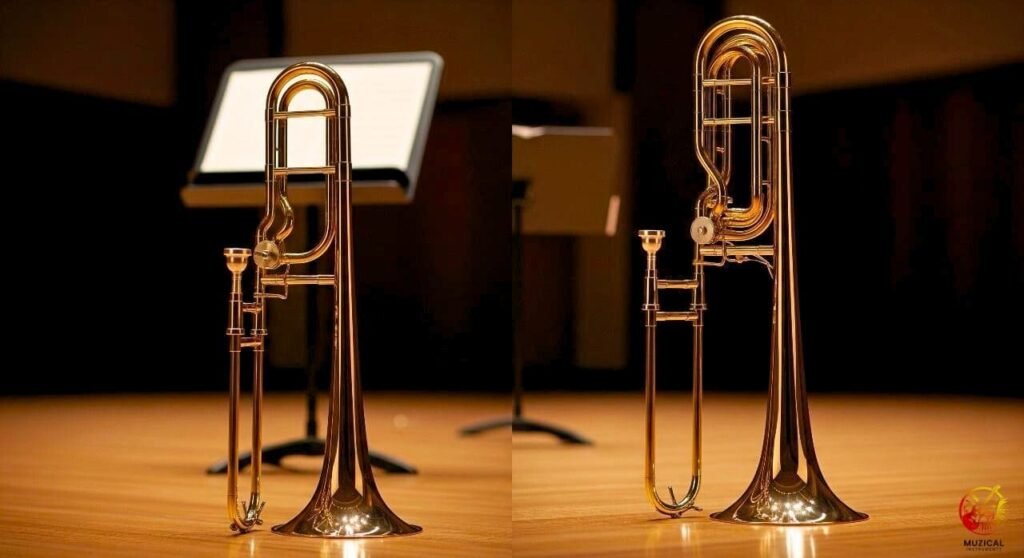
How to choose between tenor and bass trombone for a beginner also depends on your musical goals. Do you see yourself in a jazz band, a marching band, or an orchestra?
The tenor trombone is the universal choice for school bands, jazz ensembles, and chamber groups. It handles melodies, harmonies, and solos equally well. Its bright yet flexible tone fits everywhere from swing jazz to marching music.
The bass trombone, however, thrives in symphonies, film scores, and brass choirs. It carries the lowest brass voice, adding weight to orchestral sections. That iconic rumble you hear in movie soundtracks often comes from the bass trombone.
| Style | Tenor Trombone | Bass Trombone |
|---|---|---|
| Jazz / Big Band | Lead or section parts | Rare, low fills only |
| Marching Band | Standard instrument | Rarely used |
| Symphony Orchestra | Core instrument | Adds bottom power |
| Film Scores | Supporting voice | Iconic booming low brass |
If your path is flexible, playing at school, joining local groups the tenor wins. If your dream is orchestral power, the bass may be your long term goal.
How much do tenor and bass trombones cost for beginners?
Cost often determines how to choose between tenor and bass trombone for a beginner.
Tenor trombones are generally cheaper. Student models from Yamaha or Conn-Selmer range between $300 and $800, while step up models may cost $1,000–$1,200.
Bass trombones are far more expensive because of their size and valve mechanisms. Even entry level versions start around $1,500 and can reach $3,000 or more. Professional models like a Bach Stradivarius can exceed $5,000.
| Instrument | Beginner Price Range | Advanced Price Range |
|---|---|---|
| Tenor Trombone | $300 – $1,200 | $2,000+ |
| Bass Trombone | $1,500 – $3,000+ | $5,000+ |
If you’re testing the waters, the tenor is safer for your wallet. Many school programs loan tenor trombones, but bass models are rarely available for free use.
Pro Tip: Buy or rent a tenor first. If you grow serious, you can later invest in a bass without regret.
Should a beginner start on tenor and switch to bass later?
A common question is whether you should start with tenor and move to bass. The short answer: yes.
The tenor gives you fundamentals breathing, embouchure, tone control, and slide technique. Once these are solid, switching to bass is natural. Skipping this step is like trying to lift heavy weights before building basic strength.
| Stage | Instrument | Focus |
|---|---|---|
| Year 0–2 | Tenor Trombone | Basics: slide accuracy, airflow, embouchure |
| Year 2–5 | Tenor / Transition Bass | Expand range, join ensembles |
| Year 5+ | Bass Trombone | Specialize in orchestral, film, or brass choir work |
Many bass players, including professionals in orchestras, started with tenor. By doing so, they avoided poor habits and gained the flexibility to play in more ensembles during their early years.
How to Choose Between Tenor and Bass Trombone for a Beginner: Decision Time
Now comes the big question, how to choose between tenor and bass trombone for a beginner in your specific situation?
Start by honestly looking at your physical setup.
- Can you reach all slide positions on both instruments while sitting up straight?
- Do you have enough lung power to make clear sounds?
Think about what kind of music excites you.
- Do you like playing melodies and taking solos?
- Do you prefer being the foundation that supports everyone else?
Look at your local opportunities too.
- What does your school band need most?
- Are there community bands you might join later?
Ask yourself about commitment level too.
- How serious are you about music?
Your answer points toward the right choice.
If you just want to play for fun in school, either instrument works fine. If you’re thinking about music scholarships or professional playing, the choice matters more.
Consider your practice habits honestly. Bass trombone demands daily practice to keep your breathing and lip strength up. Tenor trombone forgives missed practice days a bit better. But both instruments reward regular work.
Final Check: Try both instruments if possible. Some music stores let you test different models. Your band director can probably arrange trial periods too.
What do music educators recommend?
Band directors, private teachers, and orchestral mentors almost always advise beginners to start on tenor. Schools often have tenor trombones ready for loan, and method books are written with tenor in mind.
Educators also emphasize accessibility: the tenor fits jazz bands, marching bands, orchestras, and chamber ensembles. Bass trombone has fewer beginner level opportunities, so you might end up sitting out more often if you start there.
When asked how to choose between tenor and bass trombone for a beginner, teachers stress motivation. Beginners progress faster when they can join groups and perform. That’s far easier with tenor.
Final Thoughts on Your Big Decision
When deciding how to choose between tenor and bass trombone for a beginner, the choice comes down to versatility, ease, and cost. The tenor trombone is lighter, more affordable, and widely used in school and community ensembles. It helps you build strong fundamentals before advancing to specialized music.
The bass trombone, while powerful and iconic, is better for advanced players with strong breath control and stamina. It’s also a larger financial commitment.
The smart path is clear: start with a tenor, then move to bass later if your passion pulls you there. By beginning with flexibility, you set yourself up for confidence, progress, and the freedom to grow into any style of music.
FAQ: How to Choose Between Tenor and Bass Trombone for a Beginner
1. Is trombone a good instrument for a beginner to learn?
Absolutely! The trombone is a fantastic starting instrument. While learning the slide positions takes practice because there are no buttons, it teaches you to play by ear, which is a great musical skill. It’s also a core instrument in almost every kind of music, from orchestras to jazz bands, so you’ll have plenty of opportunities to play.
2. Do you really need long arms to play the trombone?
Not at all. While having long arms can make reaching the farthest slide positions (6th and 7th) a bit easier, it’s not a requirement. Many players with shorter arms do just fine. A good teacher can show you how to position your body and hold the slide correctly. Plus, a tenor trombone with an F attachment solves this problem by letting you play those far notes in closer positions.
3. Why is the bass trombone so much bigger than the tenor?
The bass trombone is bigger because its job is to play very low notes with a huge, powerful sound. The wider tubing (bore) and larger bell help create that deep, dark tone that anchors the whole brass section. Think of it like the difference between a regular speaker and a subwoofer, the subwoofer has to be bigger to produce those low rumbles.
4. Can I use a tenor trombone mouthpiece on a bass trombone?
No, the mouthpieces are not interchangeable. A bass trombone requires a much larger and deeper mouthpiece to help the player push enough air to create its signature low notes. A tenor mouthpiece is smaller to help with flexibility and higher notes. They also have different-sized shanks (the part that goes into the horn), so they physically won’t fit in the wrong instrument.
5. Can you play jazz on a bass trombone?
While the tenor trombone is the more common star in a jazz band, the bass trombone definitely has a place. In big bands, it plays the essential low-end parts that support the whole section. While it’s not typically a solo instrument in the same way the tenor is, many modern jazz players are using the bass trombone in creative and exciting ways.
6. How long will it take me to get good at the trombone?
This depends on how much you practice! You can learn to make a decent sound and play simple songs within a few months. To get really “good” and feel confident in a band, it usually takes a couple of years of consistent practice. The key is to be patient and have fun with the process.
7. If I start on tenor, can I switch to bass trombone later?
Yes, and this is a very common path for trombonists! Starting on a tenor trombone helps you master all the fundamentals of slide technique, breathing, and reading music. After a year or two, once you’ve grown and built up your strength, switching to the bass trombone is a much smoother and easier transition. This is often the best approach when thinking about how to choose between tenor and bass trombone for a beginner.

